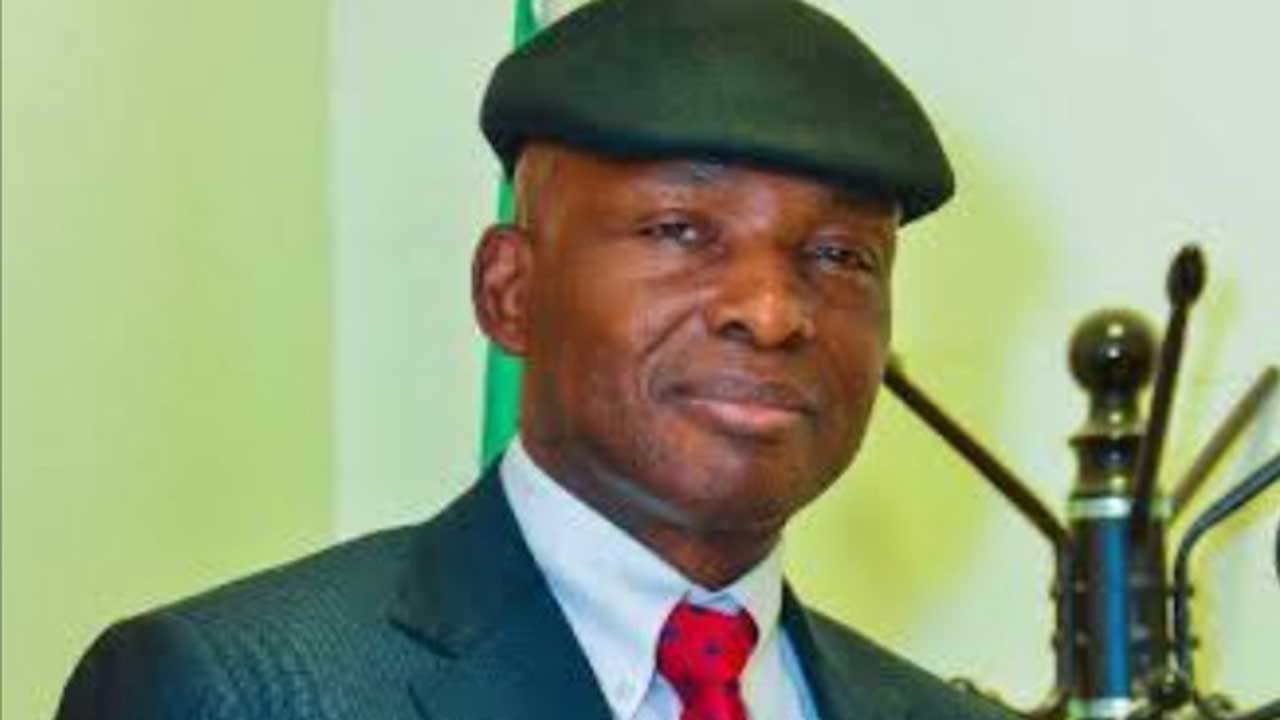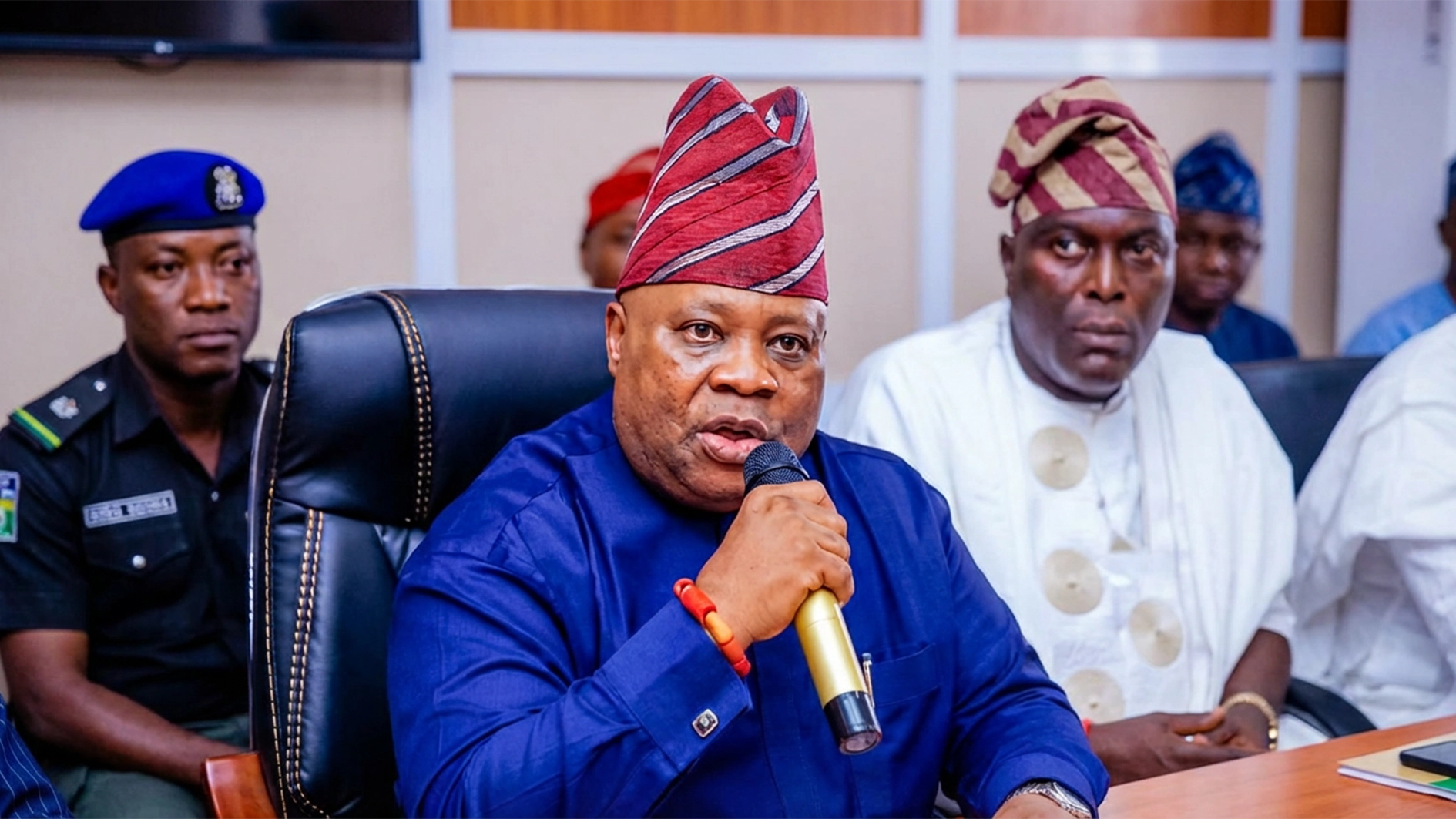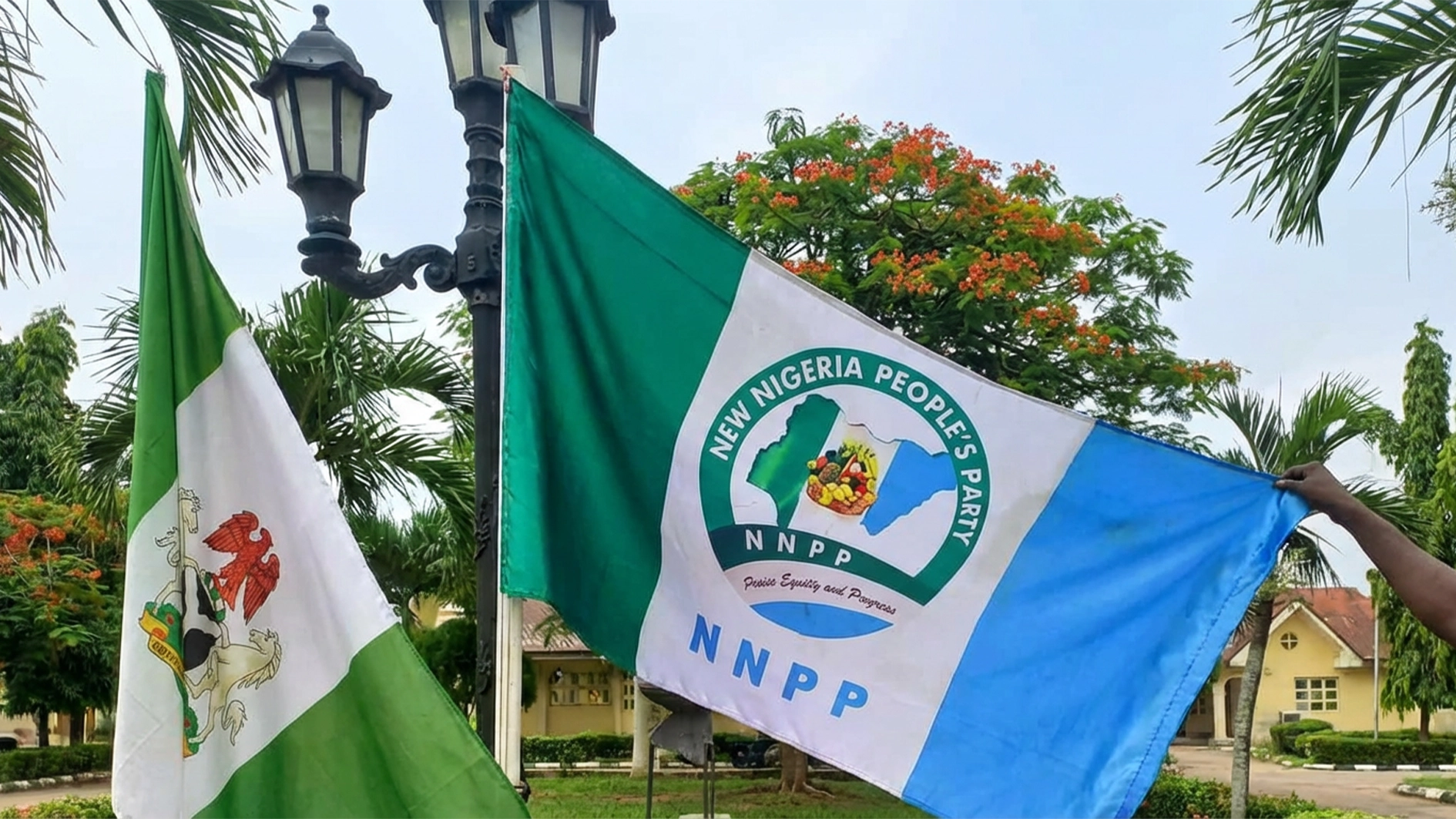The outcome of the recent by-elections into 16 constituencies in 12 states of the federation, where APC won in 12 suggests that the electorate still support the ruling All Progressives Congress (APC), thereby forcing members of the opposition parties hell-bent on seizing power through the ballot in 2027 back to the drawing board, ONYEDIKA AGBEDO writes.
No doubt, the results of Saturday, August 16, 2025by-elections conducted across 16 constituencies in 12 states of the country have sent the opposition parties, especially the African Democratic Congress (ADC), which a number of political bigwigs have coalesced in with the aim of wrestling power from the ruling All Progressives Congress (APC) in 2027, back to the drawing board. Top promoters of the ADC coalition include experienced politicians like former vice president Atiku Abubakar; presidential candidate of the Labour Party in the 2023 elections and former governor of Anambra State, Mr. Peter Obi; former President of the Senate, David Mark, who was named interim chairman of the party and Rauf Aregbesola, the interim national secretary of the party. Mark represented Benue South senatorial district from 1999 to 2019 and had before the restoration of democracy served as military governor of Niger State from 1984 to 1986; while Aregbesola served as governor of Osun State from 2010 to 2018 and Minister of Interior from 2019 to 2025.
Others are Nasir El-Rufai, a former Director of the Bureau for Public Enterprises, former Minister of the Federal Capital Territory and former governor of Kaduna State; Rotimi Amaechi, a former governor of Rivers State and former Minister of Transportation; and Abubakar Malami (SAN), who served as the Minister of Justice and Attorney General of the Federation from 2015 to 2023.
The by-elections, conducted a month and 16 days after the ADC was unveiled with fanfare in Abuja, was a test on whether the electorate has bought into the opposition’s agenda of sending the APC packing in 2027 or still has a modicum of support for the APC government led by President Bola Ahmed Tinubu.
The outcome of the polls was eye-opening: Out of the 16 positions up for grabs, the APCwon in 12 constituencies; the All Progressives Grand Alliance (APGA) triumphed in two, while the People’s Democratic Party (PDP) and the New Nigeria People’s Party (NNPP) each won a constituency. The ADC was left with nothing! Meanwhile, the APC not only won in all its strongholds but also gained from the opposition’s ground.
For instance, the Kaura-Namoda South Constituency, which APC eventually won, is in a PDP controlled state – Zamfara. It won the Ghari/Tsanyawa state constituency of Kano State with a total of 31,472 votes, defeating the NNPP which got 27,931 votes. It won the Ganye State Constituency, Adamawa State, with its candidate, Misa Musa, narrowly beating the PDP candidate, Buba Muhammad Joda with 16,923votes to 16,794 votes. The APC’s Abner Shittuwon in Karim 1 Constituency, defeating his PDP challenger, Ali Kanda, by a comfortable margin of 5,901 votes to 5,527 votes. While Kano State is governed by an NNPP governor, both Adamawa and Taraba states are governed by the PDP.
In most of the results of the by-election, the ADC came third, with a very gaping margin of loss. And many analysts have asked: Is this how the opposition parties intend to oust President Tinubu and his party, the APC, from Aso Rock in 2027?
But the ADC has said that the results of the by-elections do not accurately reflect the strength of the coalition seeking to end APC’s grip on power.
The party’s National Publicity Secretary, Mallam Bolaji Abdullahi, in a statement last Sunday, said the ADC did not field candidates for most of the positions contested in the by-election, hence, the outcome can’t be used to judge the influence of the party going into the 2027 elections.
Despite this claim, Abdullahi alleged serious irregularities in the conduct of the elections.He said: “What Nigerians witnessed in yesterday’s by-elections is yet another reminder that under the current administration, democracy itself, just like the economy and our national security, continues to decline under President Bola Ahmed Tinubu and the APC.
“When elections are marred by widespread violence, when ballots are openly and brazenly exchanged for money, when opposition candidates are excluded without explanation, and when the very institutions entrusted to safeguard democracy become complicit, then the vote of the ordinary Nigerian ceases to have meaning.
“In some states, nearly 300 thugs armed with rifles, knives, and cutlasses were arrested on election day. Is this democracy—or banditry disguised as voting?
“In some states, whole polling units were cancelled due to ballot box snatching and the open intimidation of voters. If citizens cannot go to the polls without fear of assault, then the most basic covenant between the state and its people has already broken down.
“In one state, a vote-buyer was caught with N25.9 million intended to procure and corrupt the will of the people. In another, election officials were themselves implicated in similar inducements. This is no longer isolated malpractice; it is fast becoming the political culture of our electoral process under the APC.
“After so many years, the failure of the Bimodal Voter Accreditation System (BVAS) in some states has once again raised questions about the Commission’s competence, sincerity, and perhaps, complicity. Nigerians deserve elections that command the implicit confidence of every citizen and respect of the rest of the world. INEC must not be allowed to turn excuses to a code of conduct.
“The bigger picture that we must all remember is that for better or worse, these by-elections represent the clearest indication of a dress rehearsal for 2027. If violence, vote buying, candidate intimidation and exclusion, and collusion between security forces and compromised election officials become the new normal, then Nigerians and the international community must brace themselves.”
The PDP also took a similar position, with many of its state chapters that participated in the election decrying the outcome.The Edo State chapter of the PDP rejected both the results of the senatorial and House of Representatives by-elections.
In a statement, the Elections Secretary of the Edo PDP Caretaker Committee, Chris Nehikhare, accused INEC of deliberately sabotaging the exercise, describing the process as a major setback for Nigeria’s democratic credibility.
The party, in a statement signed by its State Publicity Secretary, Umar Kyari, accused the APC of leveraging state power unfairly during the election, noting that “APC used state power and indulged heavily in vote buying, intimidation of voters as well as their harassment during the exercise.”
The Chairman of the PDP in Adamawa State, Shehu Tahir, had also announced that the party would contest the outcome of the Ganye State Constituency by-election in court .
Tahir alleged that the Assistant Inspector-General of Police, Taiwo Adeleke, who oversaw security during the exercise, provided cover that enabled the APC to manipulate the election results.
Expectedly, with victory in its pocket, the APC hailed the outcome of the election, describing it as a clear endorsement of President Tinubu’s administration.
In a statement last Sunday, the party’s Publicity Secretary, Felix Morka, expressed deep appreciation to Nigerians for their overwhelming support, which he said led to the resounding success of APC candidates in the by-elections.
Morka said: “This win is yet another solid endorsement of President Bola Tinubu’s administration and its Renewed Hope Agenda designed to deliver, and now steadily delivering, transformation of our country’s economy and other sectors of our national life.
“We commend the President and leader of our great party for creating a level playing field for the by-election contest, as well as our Progressive Governors, devoted party leaders, members, and supporters for their sacrificial efforts and contribution towards this electoral victory.
“Our hearty congratulations go to our victorious candidates across the country, and we charge them to reward their constituents with purposeful legislative interventions that translate the Renewed Hope Agenda to meaningful benefits for the people.”
Analysing the outcome of the by-elections and how it may impact future polls, a political communication scholar, Dr. ‘Tayo Popoola, said the opposition parties still have a lot of work to do if they hope to take over power from the APC in 2027.
Popoola, who is the Acting Head of the Department of Mass Communication, University of Lagos, said the outcome of the polls is an indication that the opposition parties have not done enough work.
His words: “The ruling party will do everything possible to use the power of incumbency to retain power. That is democracy; that is politics; that should be expected. It is incumbent on the opposition to be well informed of this fact. So, how to outsmart the ruling party should be their major responsibility. So, the result of the elections is an indication that the opposition parties have not done enough; they have not done their homework very well. If they continue like this, the result of the 2027 elections is already known.
“So, for them to outsmart the ruling party, they must do a more objective campaign by analysing the policies of the ruling party that are making life unbearable for the masses. They must be able to tell the masses, in concrete terms, how the policies of the government have affected them. They can do this in various languages, not only in English language. They have their supporters across the country. So, they should articulate their position very well. It is when you reason along with them that the people will now sway their support from the ruling party to the opposition. So, they should do more enlightenment between now and 2027. General statements like ‘things are tough’; ‘things are hard’; ‘people cannot longer eat three times a day;’ will not be enough. They must bring it down to the level that the ordinary man on the street will understand.”
Popoola advised the opposition parties not to rely on social media “because it will not work,” but rather take their message to the grassroots. He noted that political parties are structured from the ward to the local council, state and national levels. He also pointed out that the uncontrolled defection of politicians from one party to the other is unhealthy for the polity, adding that it may have confused the electorate in the recent by-elections.
He added: “We must admit that some of the electorate are confused by the spate of movement of politicians from one party to another. Before people will vote for you, they must be sure that they know who is running for an election and they must be sure of the platform on which you are running. So, the opposition parties may have caused their defeat by the defections.
“The current re-grouping has not been consolidated; it’s only in the media thatthey are re-grouping. It has to spread down to the grassroots and the people must understand why they are defecting from one party to the other.
“Politics has gone beyond the level of some people gathering at the national level and saying, ‘this is what we have decided’ and then announce it through the media and expect that the people will follow them blindly. The move must be engineered from the grassroots if they are serious about 2027.”
Asked if the opposition parties would still be able to build a formidable structure before the 2027 elections, Popoola answered in the affirmative.
He said: “Oh yes! It’s still a long time. Between now and 2027, anything can happen. We are talking about politics. There are several variables. One single variable can work in their favour if they are serious minded – the disagreement that we are reading about on the pages of newspapers shouldbe avoided. They must be cohesive.Election can be equated with war in this country. So, if we take it the way they perceive it, then there must be no division. They must work with one mind, one spirit, and one agenda.
“American political scientist, Joseph LaPalombara said that if you want to snatch power from a ruling political party, you must organise yourself very well in a cohesive manner to the level of people regarding you as being conspiratorial, in a way that outsiders will not know what you are working on such that your strategies will remain intact. And no matter any move to destabilise you, you are united. But they are being distracted; they react to every piece of information. They should rather concentrate on the task of snatching power from the ruling party.
“They were all alive when Tinubu was strategising on how to snatch power, even from the APC, the party he belongs to. He had to struggle before he could get the mandate with his party.
“So, if these people are serious about snatching power, let them sit down, map out their strategy and implement it. Beyond that, they are just joking.”
Former Director General of the Voice of Nigeria (VON), Osita Okechukwu, expressed a similar view, stressing that division among the opposition parties contributed to their failure at the polls and may give the APC an edge in the 2027 elections.
Okechukwu, a foundation member of the APC, said: “The APC is on the move. And luckily for us and unluckily for the system, the PDP that could have fought us divided itself. They say a house divided against itself cannot stand. It’s an ancient axiom. Those in ADC that are making noise were those who killed the PDP. So, a lot of people have not forgiven them. We know some of them who were governors but did not leave any good footprint. Some were divisive where they governed.
“You were the presidential candidate of the PDP in 2019 and in 2023. You have left the party. Will people reward you for that? Can they trust you? Trust deficit is the problem of the opposition. Today, PDP is having a meeting here, today they are quarrelling there. One day one trouble! Is that what encourages the electorate? Some were ministers without anything to show on the ground.
“In one of my write-ups, I said the opposition should look for a Buhari incarnate, somebody who can have cult followership and engender trust from any part of the country and stand behind him.”
Okechukwu added that there are non-partisan citizens who critically assess events, adding that it’s based on such assessments that the APC would face the electorate in 2027.“Things cannot continue being hard,” he said. “Whether you like President Tinubu or hate him, he has gotten acknowledgement from the international community and also the World Bank and IMF. So, the remaining agenda is how to advance welfare on the ground and he is looking into that.”
Even though analysts see the division in the opposition camp as their major albatross, the possibility of closing ranks before the 2027 polls seems to be far-fetched, as the PDP has distanced itself from the ADC coalition, priding itself as the only political party with the structure to square off with the ruling party at the polls. Whether the outcome of the recent by-elections would stimulate a unification of purpose among the opposition parties remains to be seen.






